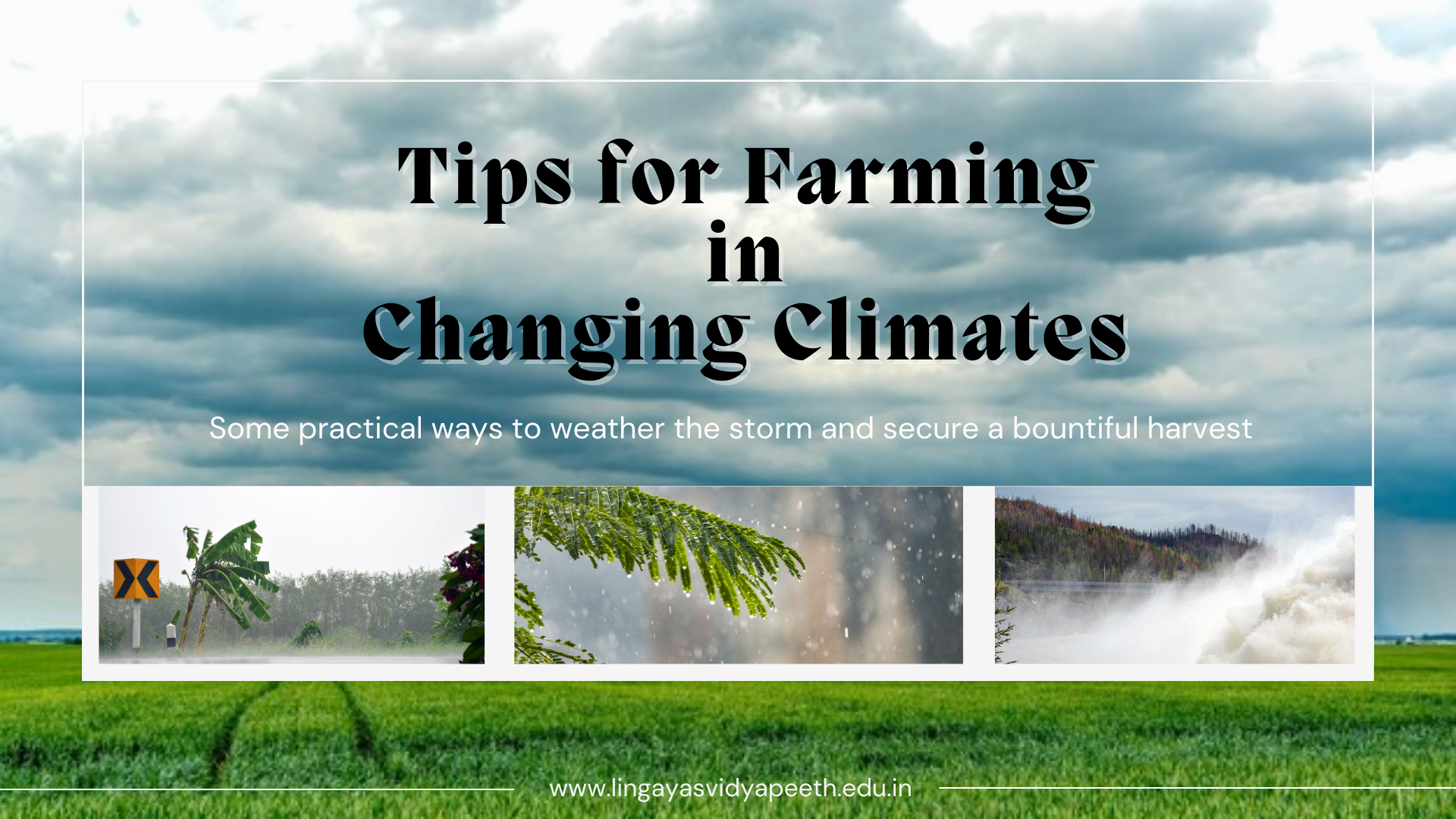Home » Effective Tips for Farming in Changing Climates

The sun beats down on parched fields, a stark reminder of the increasingly erratic weather patterns plaguing farmers worldwide. Climate change is no longer a distant threat; it’s a lived reality, testing the mettle of agricultural communities and their age-old practices. But even in the face of rising temperatures, unpredictable rainfall, and extreme weather events, farmers are a resilient bunch. They are not ones to surrender to the storm; they adapt, they innovate, and they find ways to thrive in the face of adversity.
Studying B.Sc and M.Sc agriculture program, equips you with skills to tackle climate change, safeguard crops from extreme weather, and adopt modern farming techniques for sustainability.
This blog is dedicated to these brave stewards of the land, offering a toolbox of tips and strategies to navigate the turbulent waters of our changing climate. Let’s delve into some practical ways to weather the storm and secure a bountiful harvest, even as the climate throws curveballs.
Embrace water-wise practices:
Revolutionizing Agriculture: The power of precision farming

Farming in a changing climate is no easy feat, but by embracing these tips and fostering a spirit of innovation and collaboration, farmers can not only weather the storm but also build a more sustainable and resilient future for themselves and generations to come. Remember, every small step, every adaptation, and every shared experience contributes to a larger movement towards a climate-smart agriculture that nourishes not just our bodies but also our planet.
From
Dr. Ravi Prakash Mishra
Asso. Prof./ Head
School of Agriculture
Lingaya’s Vidyapeeth
Best M.Sc Agriculture Colleges in Faridabad
RECENT POSTS
CATEGORIES
TAGS
Agriculture Agriculture future AI Architecture artificial intelligence Bachelor of Commerce BA English BA Psychology BTech AIML BTech CSE BTech cybersecurity BTech Engineering Business management career Career-Specific Education career guide career option career scope Civil engineering commerce and management Computer Science Computer science engineering Data science degree education Engineering Engineering students English Literature english program Fashion Design Fashion design course Higher Education Journalism journalism and mass communication law Law career Machine Learning mathematics MBA MBA specialization Mechanical Engineering Pharmacy Psychology Research and Development students
Lingaya's Vidyapeeth (LV) only conducts physical/online verification of any document related to examination on the following official email IDs:
It is important to note that the following email IDs and domains are fraudulent and do not belong to our university:
Please do not respond to or share any personal information with these fraudulent sources.